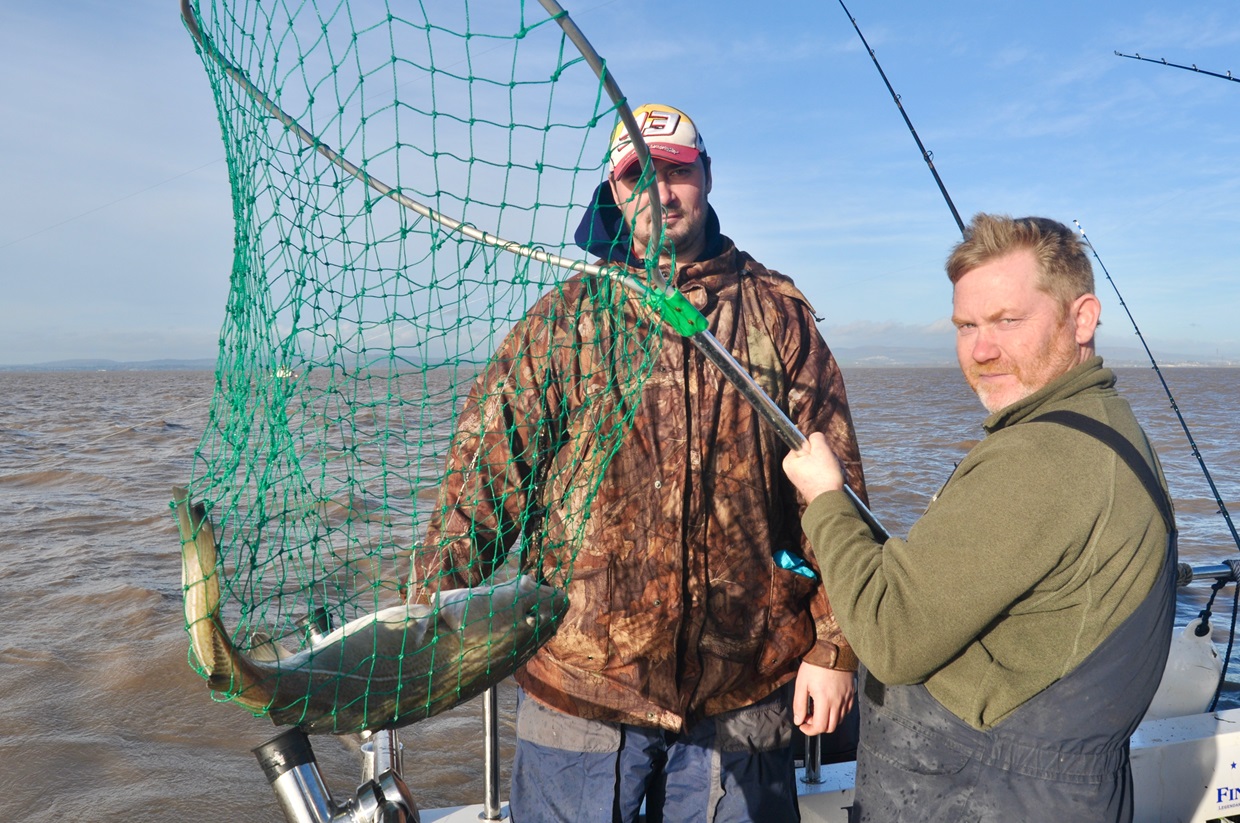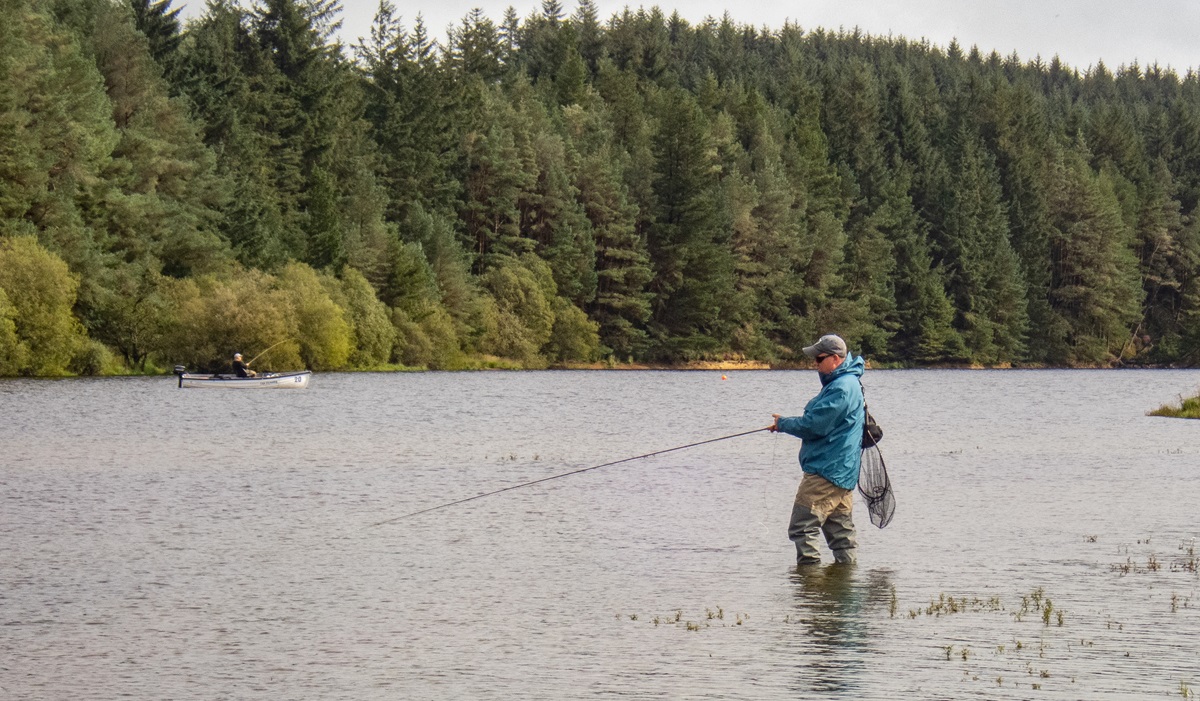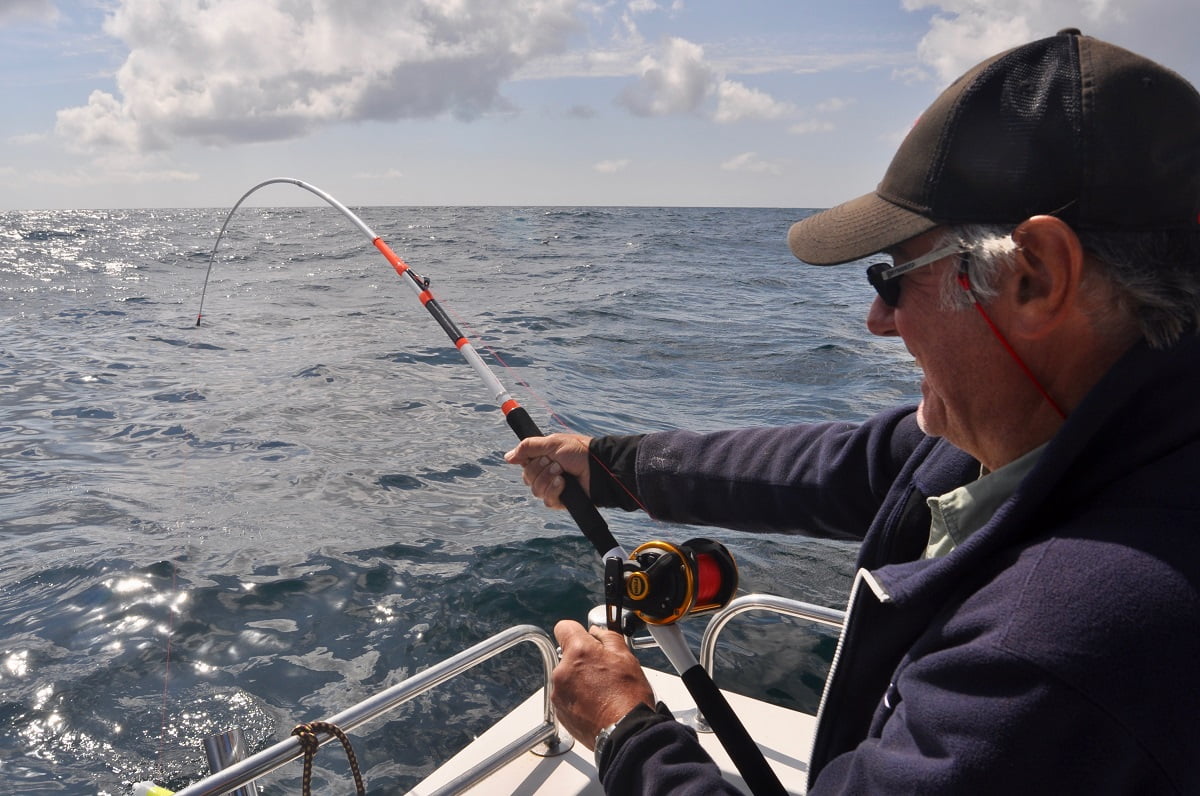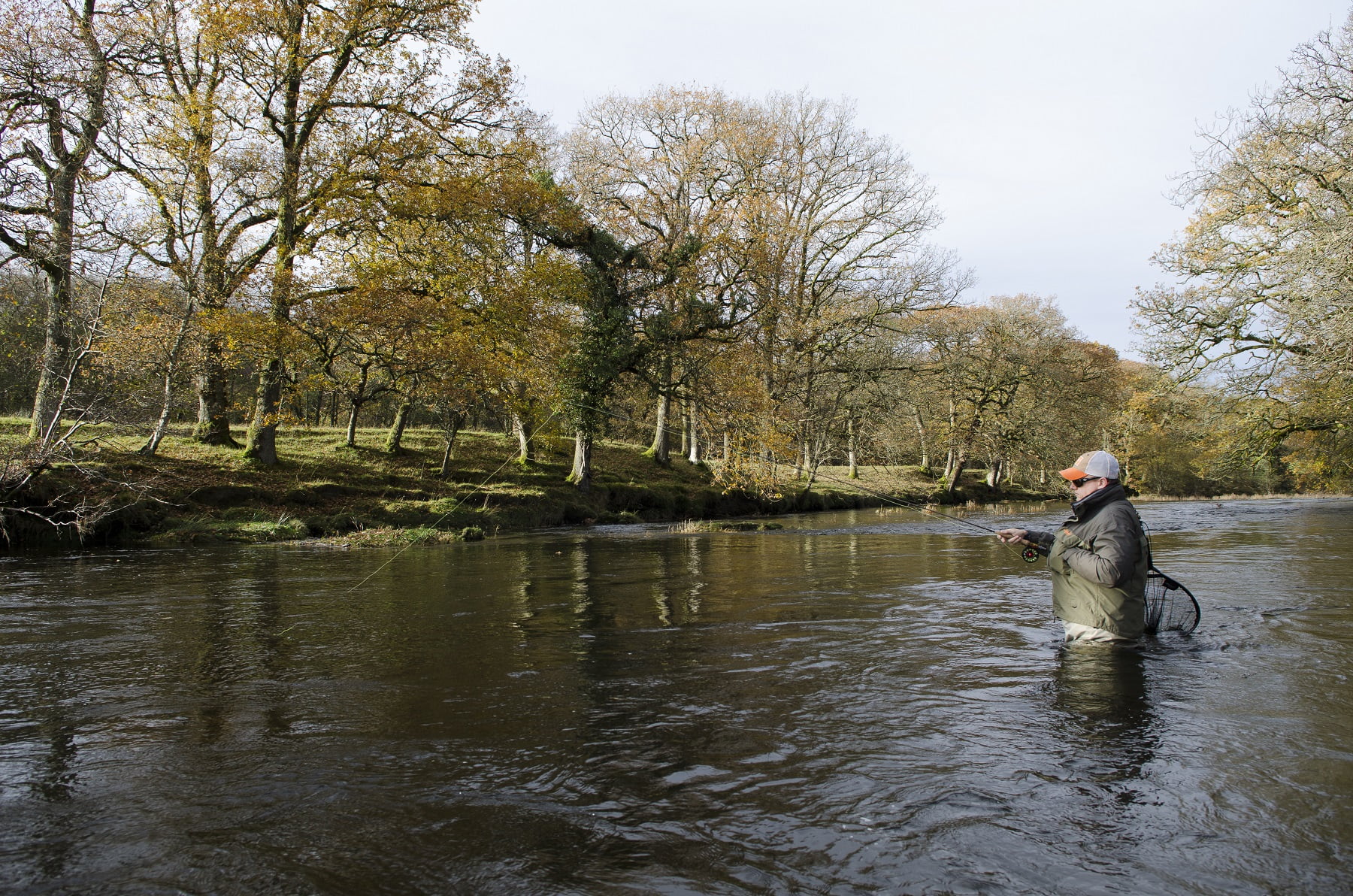Cod – Can you still catch them in Wales? Dave Lewis says yes!
Cod, ‘every sea anglers favourite fish’, at least that was what I often used to read in my younger days. Back in the day cod were far more abundant than they are today, but despite vastly diminished stocks of fish today I’m sure that many if not most sea anglers would still cite cod as being amongst their favourite fish to catch. And why not! Cod are great sport to catch, with the added bonus that they are one of the finest fish you can harvest and take home to eat.
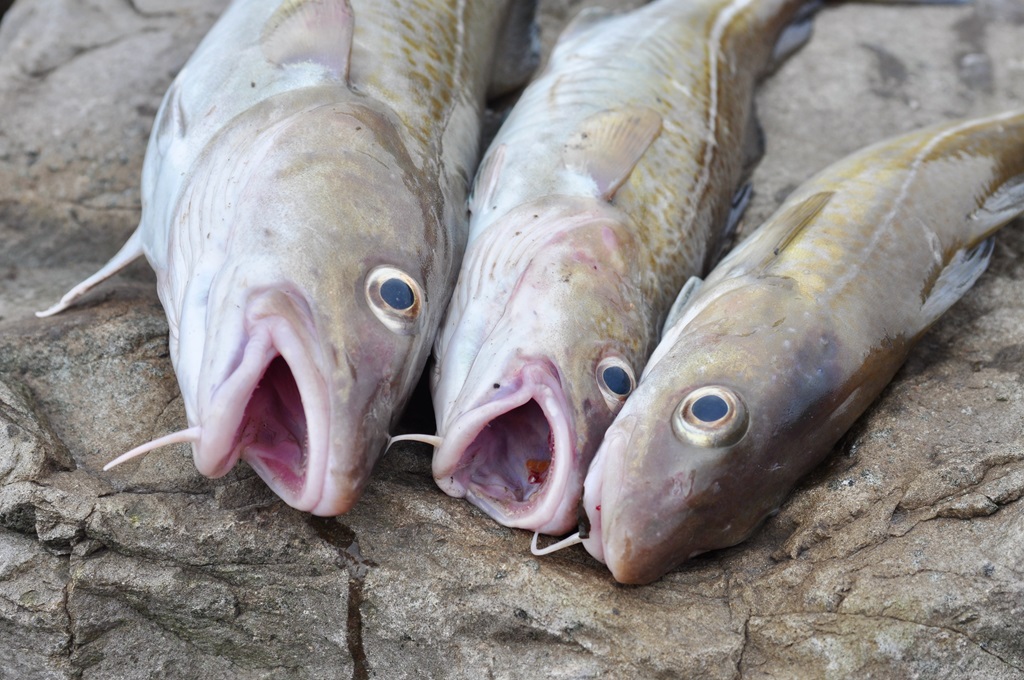
Throughout my formative years as a sea angler fishing in South Wales throughout the autumn and winter months was all about cod. From October through until well into the New Year rarely would we target other species, everything revolved around fishing for cod, whether fishing offshore or from the beach. Not long after the turn of the Millennium the numbers of cod off the coast of Wales along with much of the rest of the British Isles crashed, and within a few years those much anticipated and once reliable runs of decent sized fish had all but disappeared.
Just why this was the case is the subject of much speculation. Theories range from climate change, water quality and the availability of sufficient food to attract the fish inshore. Personally I am of the firm opinion that the reason for the decline of our cod stocks is a very simple one: excessive commercial fishing.
But that’s enough doom and gloom, what exactly are an anglers chances of catching a cod off the coast of Wales this winter? Is it probable, or is it just possible that if you set out with cod in your sights you’ll have a successful trip? I would say that the answer to that question is yes. Provided you do your groundwork and follow a few key pieces of advice then there will be times when cod are indeed a viable target species.
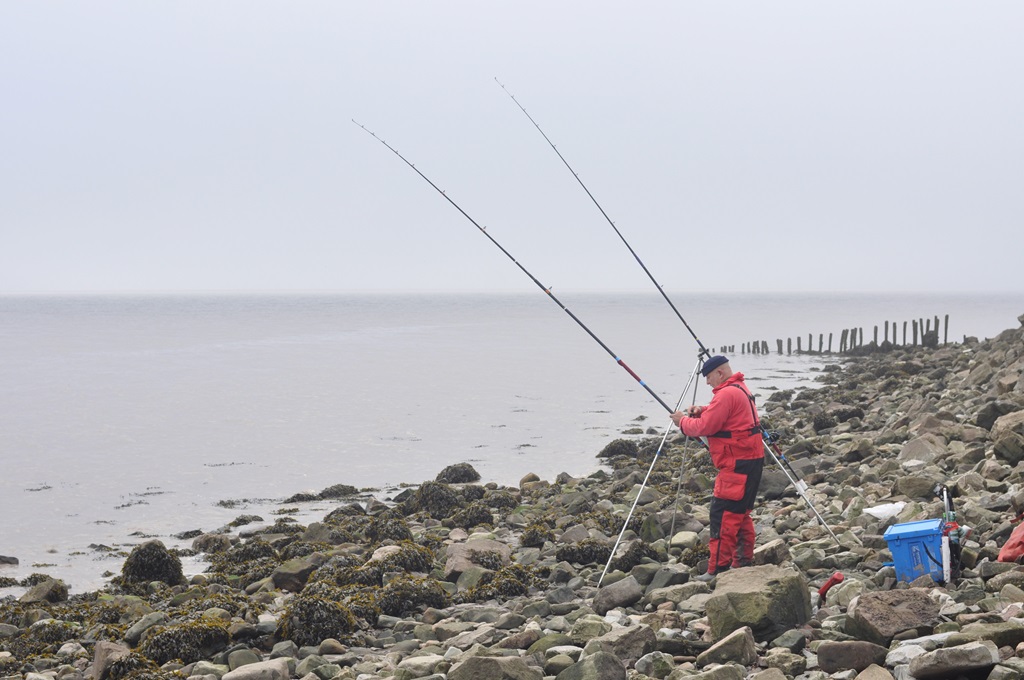
The Welsh coastline is a rich and varied landscape, and those areas which once were so productive for cod remain the most promising to focus your attention today. The stretch of coastline starting right beneath the twin Severn crossings and extending in a westerly direction to Swansea Bay has long been associated with excellent cod fishing.
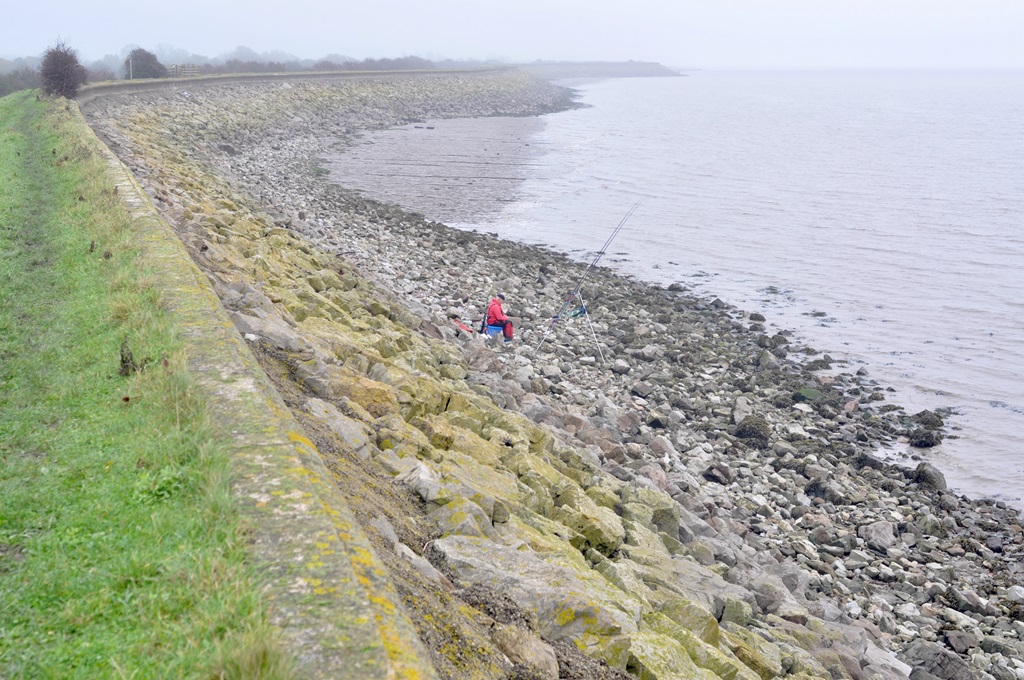
Further west Milford Haven and the various reefs within the vicinity of St Anne’s Head often holds good numbers of codling. Fish are occasionally caught by shore anglers fishing throughout Cardigan Bay and if you head further north to the Llyn Peninsula and Anglesey, the various reefs and fast flowing waters of the Menai Straight still produce codling.
Every winter there are periods when numbers of cod move inshore. These migrations are nothing like as predictable as they once were, neither do the fish remain inshore for such long periods. The single most important piece of advice I can offer anyone planning on fishing for cod in Wales this winter is to closely monitor the area you intend to fish for reports of cod.
Of course social media is the primary source of information for many anglers these days but for accurate, honest and up to the minute information, establishing a grapevine of information with friends or perhaps better still a visit to your local tackle shop takes a lot of beating. Then as soon a you learn fish are being caught in a particular area you need to get out fishing as soon as possible. Ideally on the next tide, but certainly within a day or two.
In inshore waters, which here in Wales will often be heavily coloured throughout the winter, cod hunt primarily by scent. It has always been the case that large, juicy, scent rich baits catch the most fish. For me the number one bait for cod has always been fresh black lug, with frozen blacks making an acceptable alternative. Ragworm and freshly dug blow lug will also catch plenty of fish.
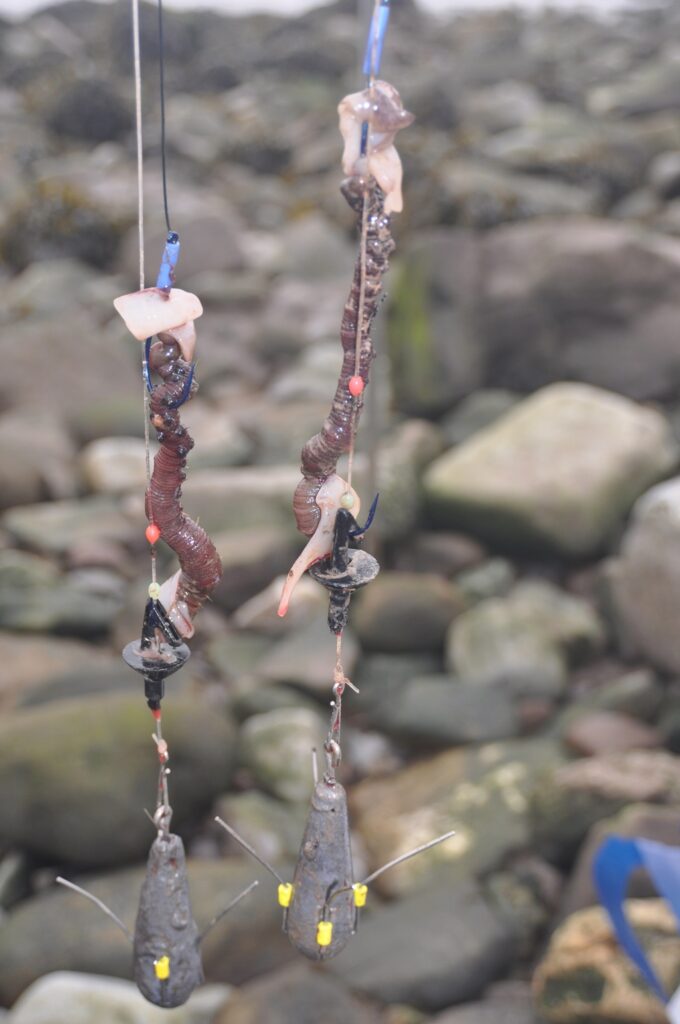
Squid is another excellent bait, either fished on its own or as a cocktail with another bait. Other excellent baits include peeler crab, razorfish, mussel and clams. Fish baits are not amongst my favourites for cod, but on occasion they do work. Livebaits including whiting, pouting or poor cod can be very effective for the bigger fish. If you are fishing afloat then a very effective technique is to fish a worm, squid or shellfish bait on one rod, and to rig a livebait on another.
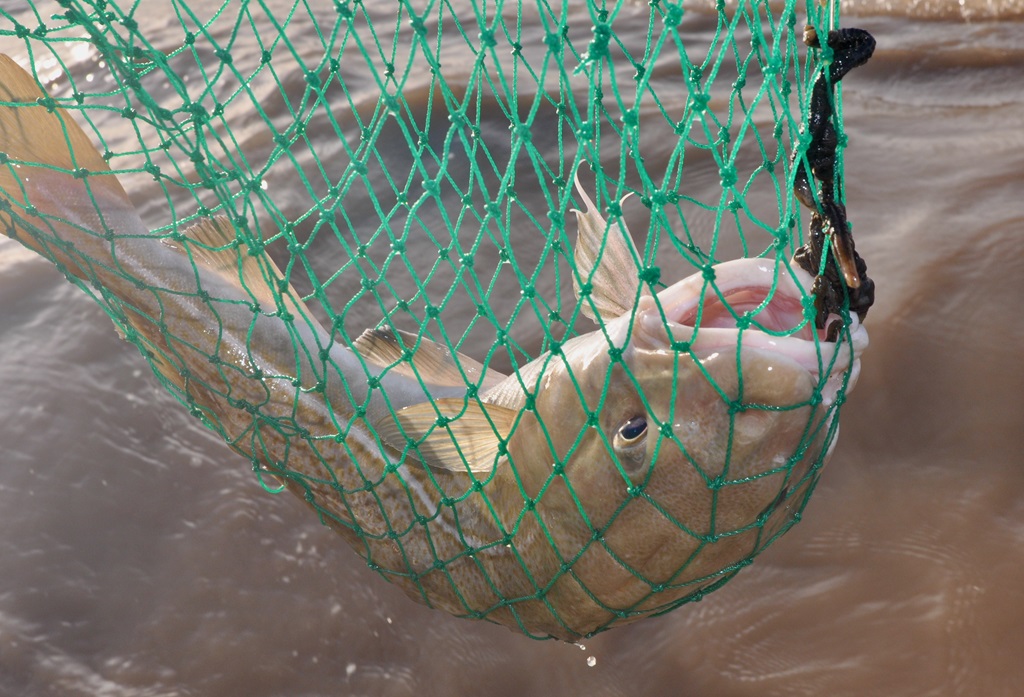
Depending on where and how I am fishing my preferred approach is dictated by the tides and the weather. If fishing offshore I have long found that settled seas coinciding with cold and frosty conditions are perfect for cod. These can be described as the classic cod fishing scenario, and if nothing else they are an absolute joy to be out fishing in. The optimum size of tide varies from mark to mark. I know marks that fish well on large spring tides, others that are best fished on neaps. Once again local knowledge is everything.
Ideal conditions when fishing for cod from the shore vary from mark to mark. There are marks which fish well under the type of settled conditions described above, others which are most likely to produce immediately following a good onshore blow. Following a spell of rough weather during which the heavy wave action will have dislodged a smorgasbord of tidbits from sanctuary within their burrows, cod and other species move inshore to take advantage of this bounty. It is worth noting that some of the most productive shore marks are found over rough ground, and when this is the case peeler crab, either fresh or frozen, takes a lot of beating.
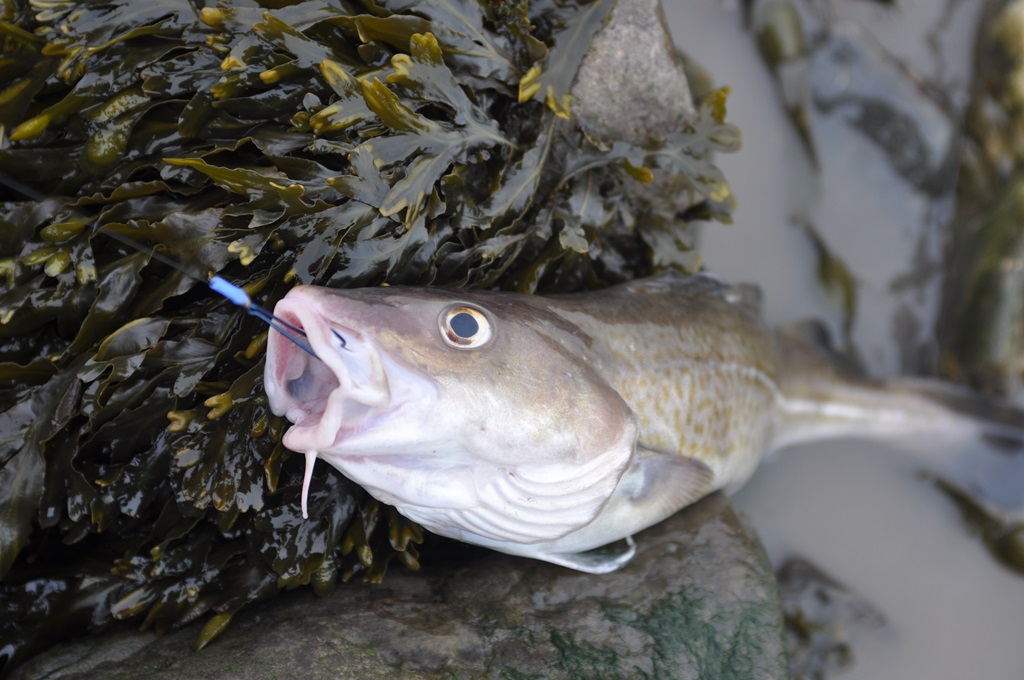
Finally, fishing during the day or at night, which is best? With many years of experience I would argue that if fishing from a boat then both are equal. However for the shore angler fishing after dark can be more productive, as cod like so many other species are more likely to venture into very shallow water during the hours of darkness. The one exception to this rule is if fishing the various shore venues to the east of Cardiff were the water is chocolate brown, with the result that cod are often encountered in just a few feet of water during the middle of the day.
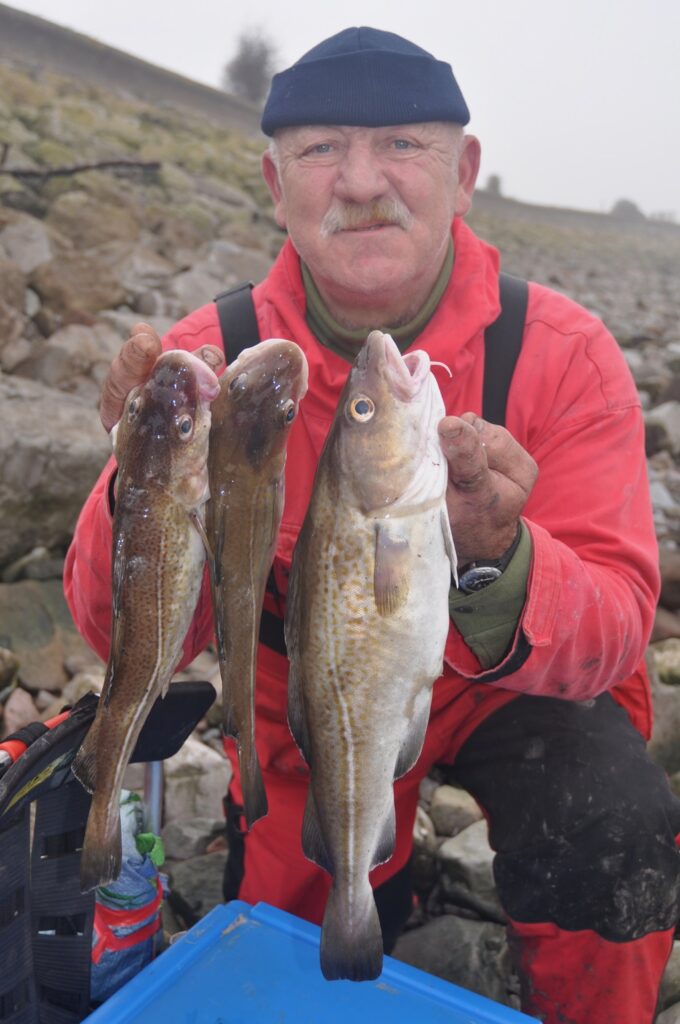
Words and Images: Dave Lewis
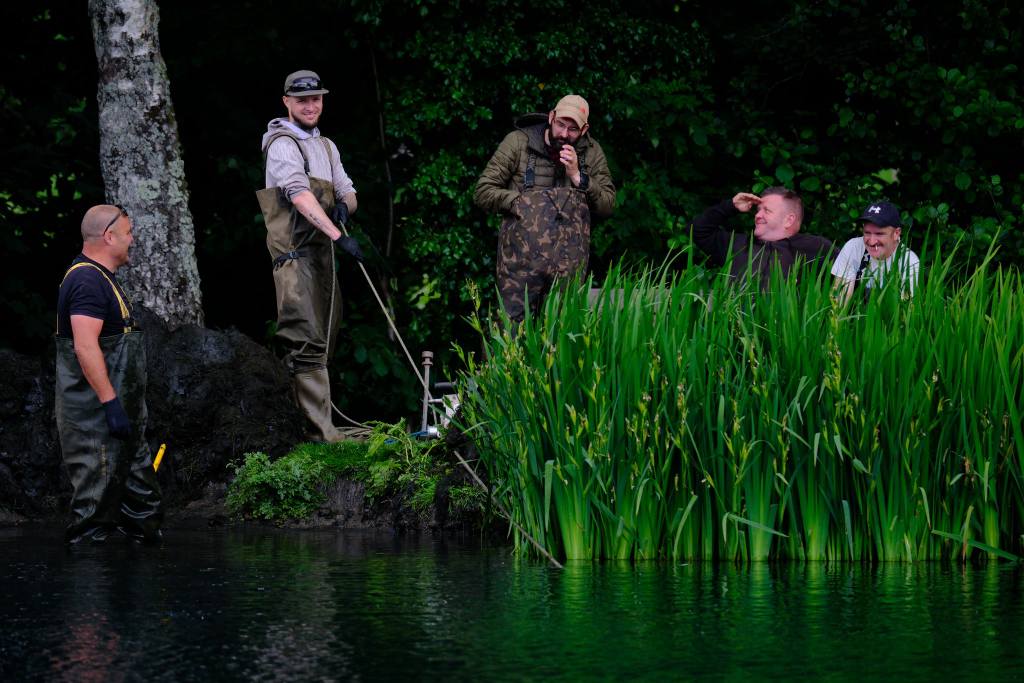
Fishing Clubs of Wales: Crow Valley Angling VIDEO
We join the Crow Valley Anglers on the Cwmbran boating lake, where we learn about the venue and the…
Read More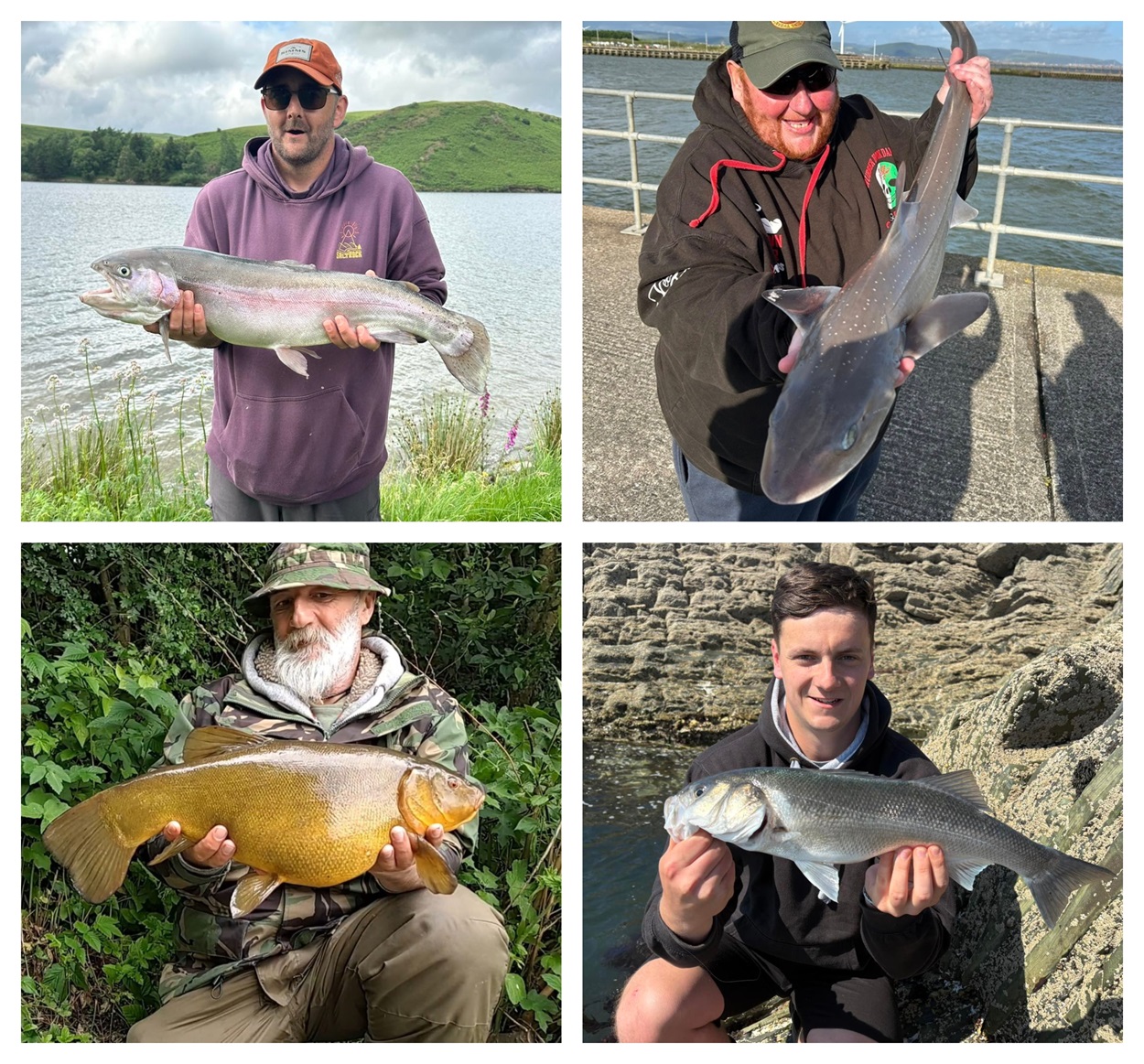
End of June 2025 Fishing Update – Game, Coarse and Sea
As we head into summer, anglers across Wales are enjoying a diverse range of fishing opportunities. While warmer river conditions…
Read More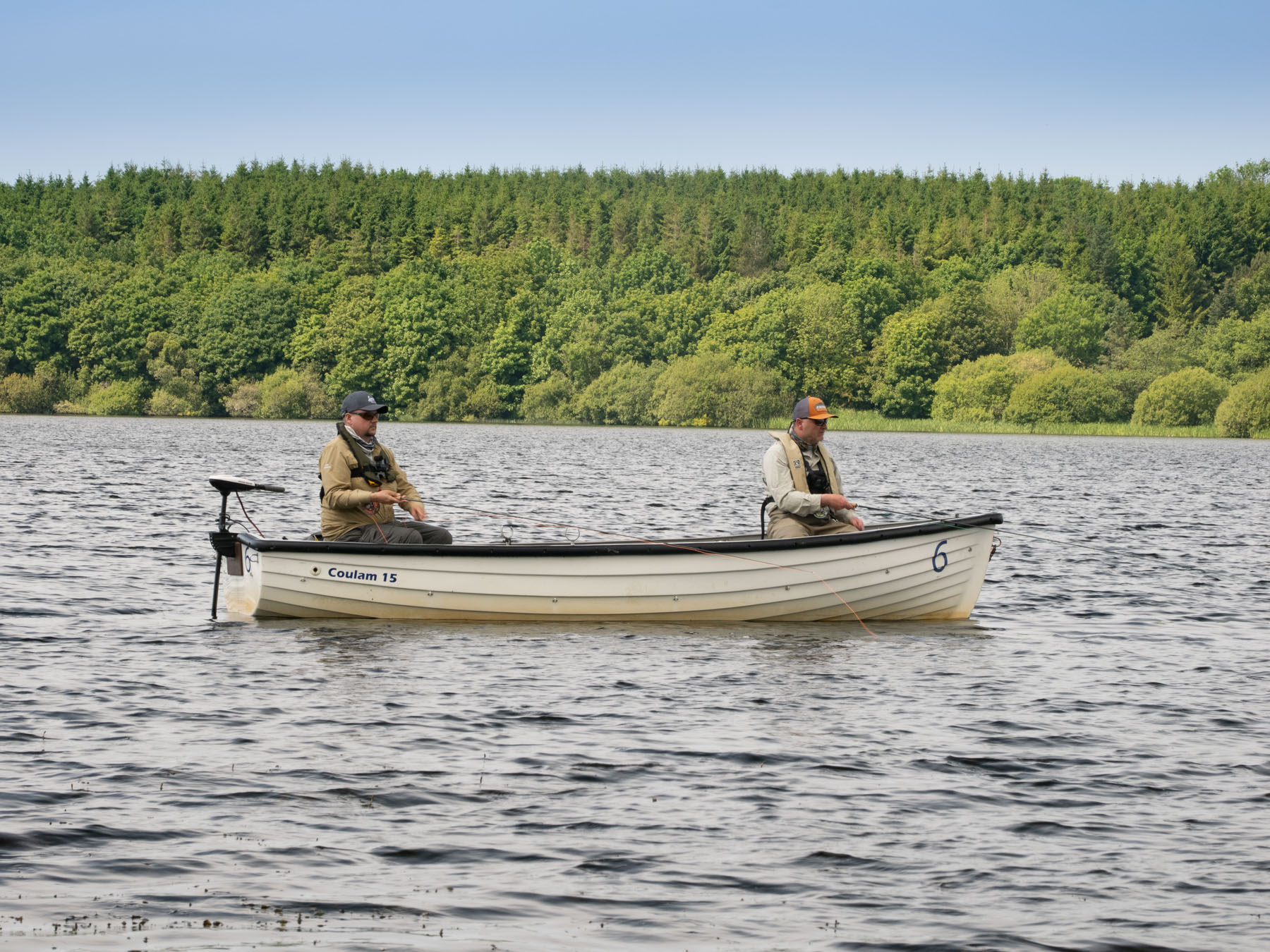
Boat Fishing on Cefni Reservoir Anglesey VIDEO
We join Ceri Thomas, Alan ‘Parf’ Parfitt and Lyn Davies on the stunning Cefni Reservoir on Anglesey for a fun…
Read More
